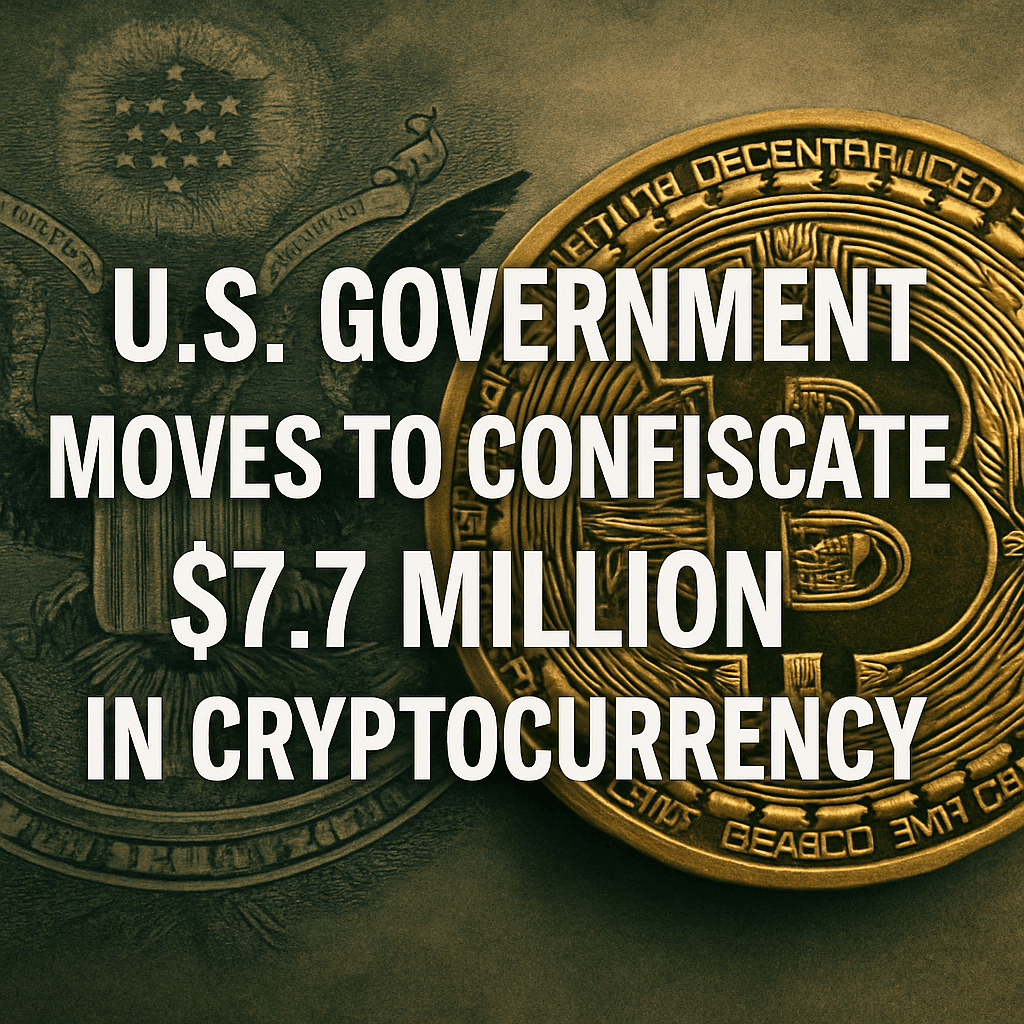U.S. Government Moves to Confiscate $7.7 Million in Cryptocurrency

The U.S. Department of Justice (DOJ) has initiated proceedings to confiscate $7.7 million worth of cryptocurrency, a sum that has been frozen in connection with an alleged scheme to launder money for the North Korean government. This action underscores the increasing scrutiny and enforcement efforts against entities suspected of illicit activities involving cryptocurrency.
Details of the Civil Forfeiture Complaint
On Thursday, the DOJ filed a civil forfeiture complaint, a legal instrument that enables the government to seek the seizure of property believed to be involved in criminal conduct. The complaint specifies that North Korean IT workers engaged in illegal employment practices, ultimately accumulating substantial amounts of cryptocurrency intended to benefit the North Korean regime. The funds in question were initially frozen in relation to an indictment dated April 2023.
The Alleged Scheme
The indictment revolves around an individual named Sim Hyon Sop, alleged to be a representative of the North Korean Foreign Trade Bank stationed in the United Arab Emirates. He is accused of conspiring with a cohort of North Korean IT workers to launder this illicitly obtained cryptocurrency. The DOJ’s filing states that these workers efficiently circumvented necessary security protocols and due diligence checks by employing fraudulent identity documents.
- The funds were reportedly converted into stablecoins such as USDC or USDT, providing a relatively safe and efficient means to transfer value while attempting to obfuscate their origins.
- Upon securing employment, these workers would remit their earnings back to North Korea through Sim or other associates, effectively channeling financial resources to a regime under heavy international sanctions.
Implications of Sanctions Evasion
This incident is part of a more extensive effort by the North Korean government to leverage global remote IT contracting and cryptocurrency markets to counteract the effects of ongoing sanctions. According to Sue J. Bai, head of the DOJ’s national security division, “For years, North Korea has exploited global remote IT contracting and cryptocurrency ecosystems to evade U.S. sanctions and bankroll its weapons programs.”
The United Nations estimates the annual profit generated from similar schemes ranges between $250 million and $600 million since 2018, showcasing the significant scale of this effort.
Recent Developments and Incidents
The concern regarding North Korean infiltration into international tech companies finds further corroboration via recent incidents, including a notable event at Kraken, a prominent U.S.-based cryptocurrency exchange. Kraken’s security team was alerted to a North Korean agent applying for a software engineer position. By analyzing the candidate’s email address, which was flagged as associated with a known hacker group, the security team promptly intervened.
“Instead of dismissing the application outright, Kraken’s Chief Security Officer Nick Percoco engaged the candidate in an interview to gain insights into North Korea’s infiltration strategies,” the company stated.
During the interview, Percoco observed significant discrepancies in the candidate’s cultural knowledge, despite having claimed education and residency in the U.S. These observations underline the challenges North Korean agents face in authentically assimilating into foreign environments—a point of vulnerability that security teams can exploit.
Analysis: Regulatory and Security Challenges in Cryptocurrency
The intersection of cryptocurrency and national security is increasingly fraught with challenges. The anonymity and decentralization inherent in digital currencies, combined with the growing sophistication of cybercriminals, complicate enforcement efforts. Regulatory frameworks continue to evolve, with some jurisdictions focusing on stringent Know Your Customer (KYC) measures while others adopt a more lenient approach.
- The effectiveness of current compliance measures against North Korean illicit activities remains a subject for ongoing debate among policymakers and regulators.
- Further collaboration and information-sharing among nations could lead to more robust mechanisms for tracking and apprehending those engaging in similar schemes.
Conclusion
The ongoing efforts by the DOJ to confiscate funds associated with North Korean money laundering are indicative of the challenges facing law enforcement in a rapidly evolving digital landscape. As cryptocurrencies continue to gain popularity and complexity, the implications for national security and regulatory frameworks will likely intensify, necessitating an agile and comprehensive response from authorities worldwide.
In summary, the interplay between North Korea’s strategies to evade sanctions through cryptocurrency and the U.S. government’s responses presents a critical area of focus for those involved in cybersecurity, finance, and international relations.
Source: fortune